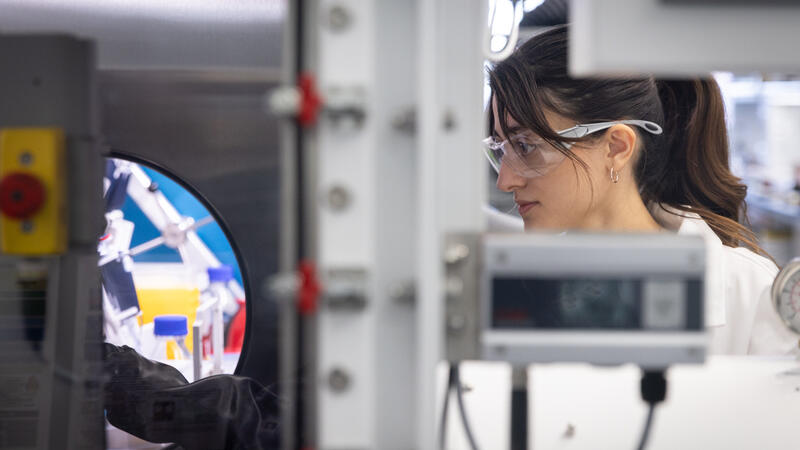News
Autonomous lab accelerates discoveries to harness power of microbes
New research from the Great Lakes Bioenergy Research Center shows that a common component of plant cell walls may not be as essential for plant growth and development as previously thought. The findings suggest a new way to increase the content of desired sugars in crops engineered for producing biofuels.
In June, the W.K. Kellogg Biological Station welcomed—from an appropriate distance!—a new researcher to our community.
Fatty acids, the compounds that give a diet rich in leafy greens and fish its antioxidant and anti-inflammatory benefits, are now also heralded for their versatility as raw materials in bioenergy production.
Congratulations to Alexandra Kravchenko, GLBRC researcher and professor of plant, soil, and microbial sciences at Michigan State University, who was awarded the 2020 Don and Betty Kirkham Soil Physics Award by the
On July 5, 2020, Professor Jennifer Reed passed away after a long illness. Jennie joined the chemical and biological engineering faculty at UW-Madison in 2007, jumpstarting the department’s research efforts in computational systems biology.
Grasslands are a vital but shrinking ecosystem in the U.S., and conversion to cropland is a leading driver of this change.
Adrianna Trusiak has been on the job for three months but still hasn’t seen her office. She started her role as a Great Lakes Bioenergy Research Center research coordinator at the beginning of April, just a few weeks after the Center’s in-person operations ceased due to the COVID-19 pandemic.
One of the slowest and most expensive steps in turning biomass into chemicals and other useful products is separating the compounds of interest from the mixture of liquid solvents and other byproducts made during processing.





